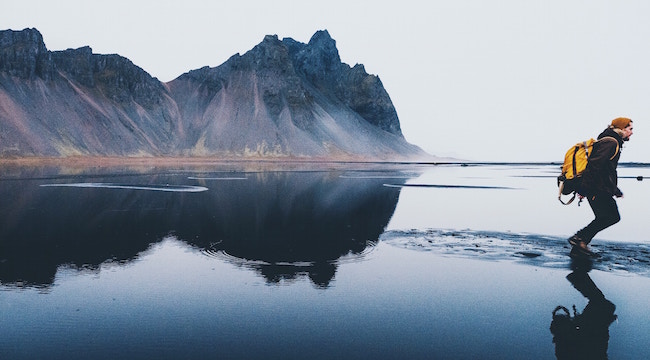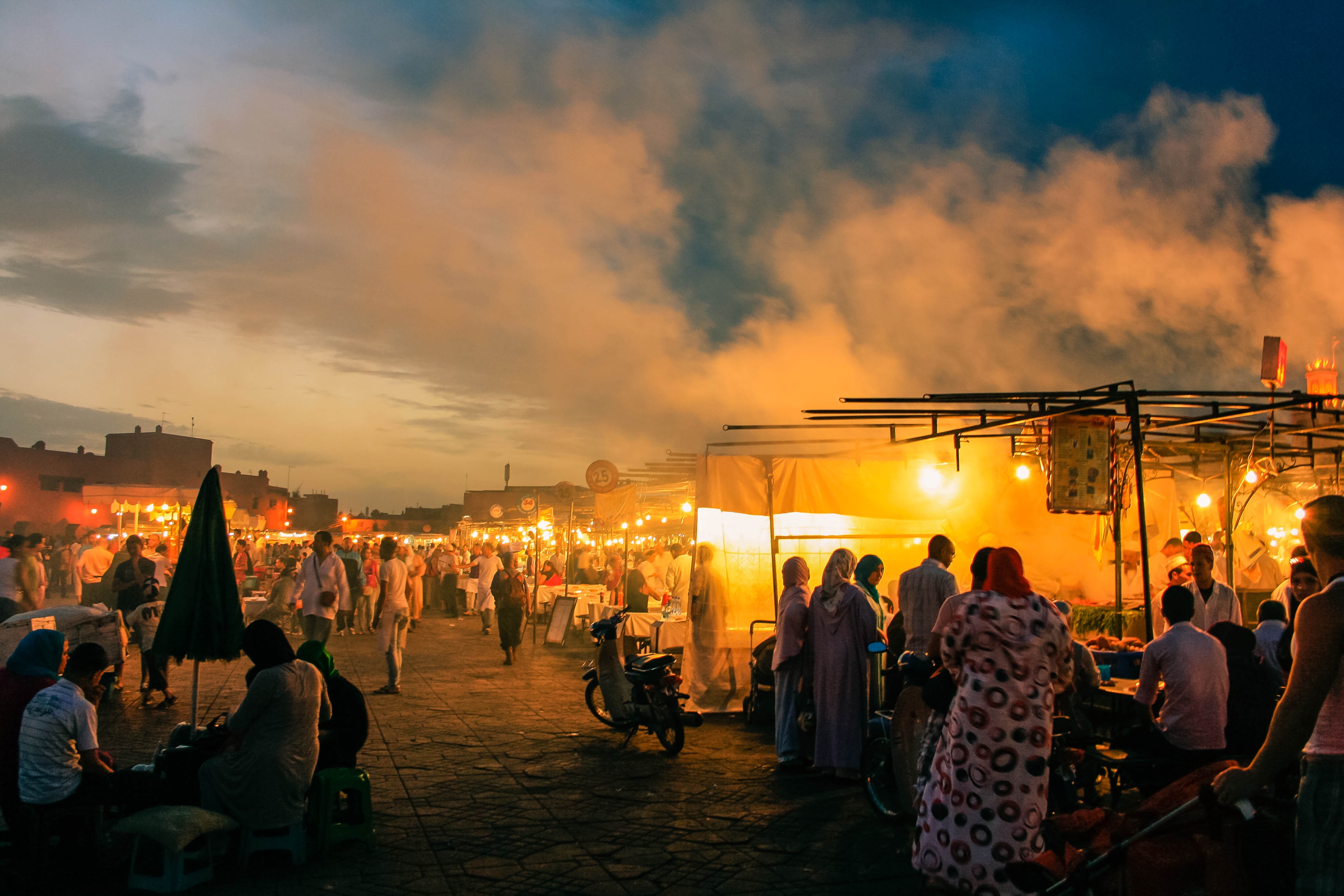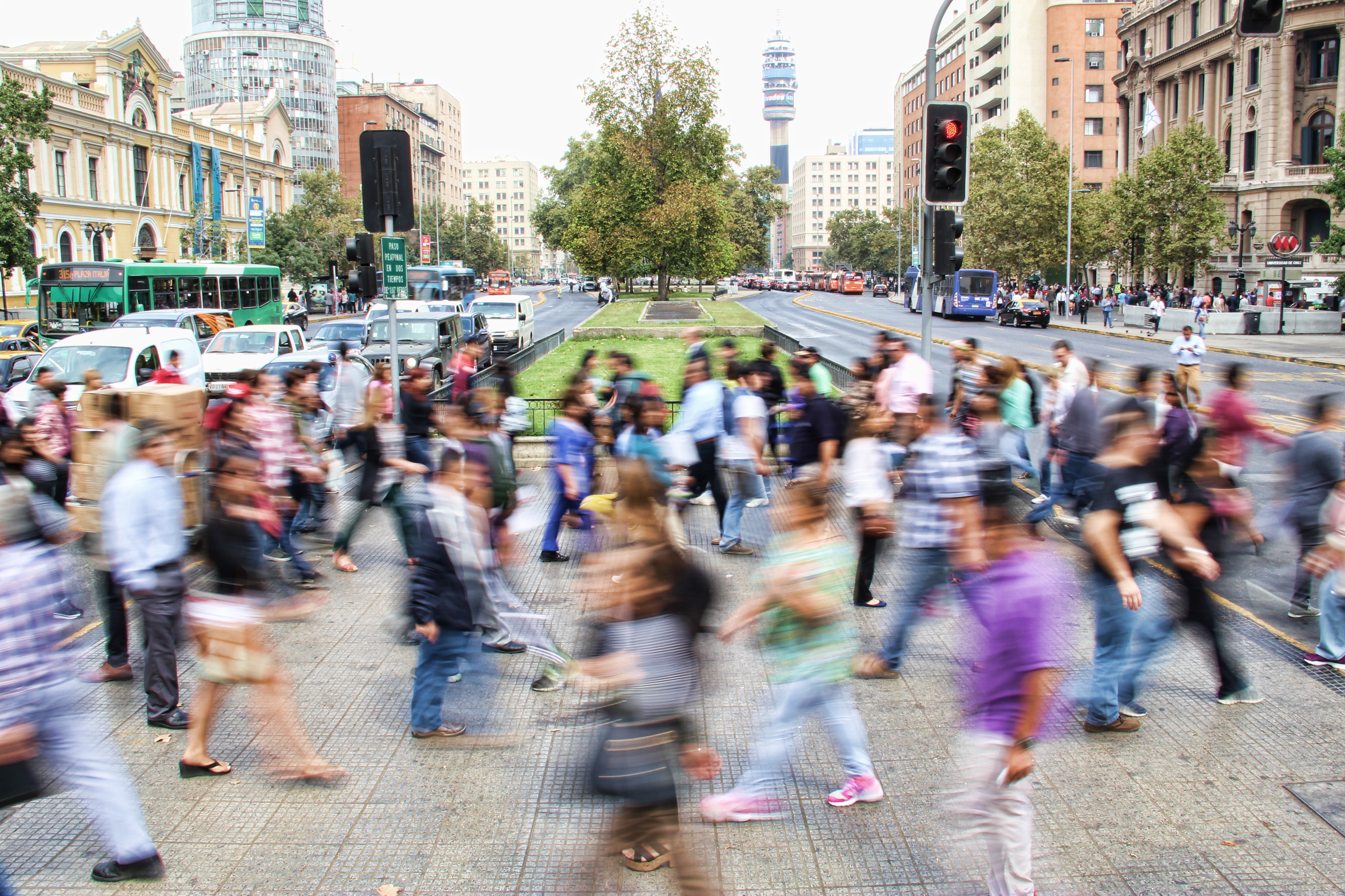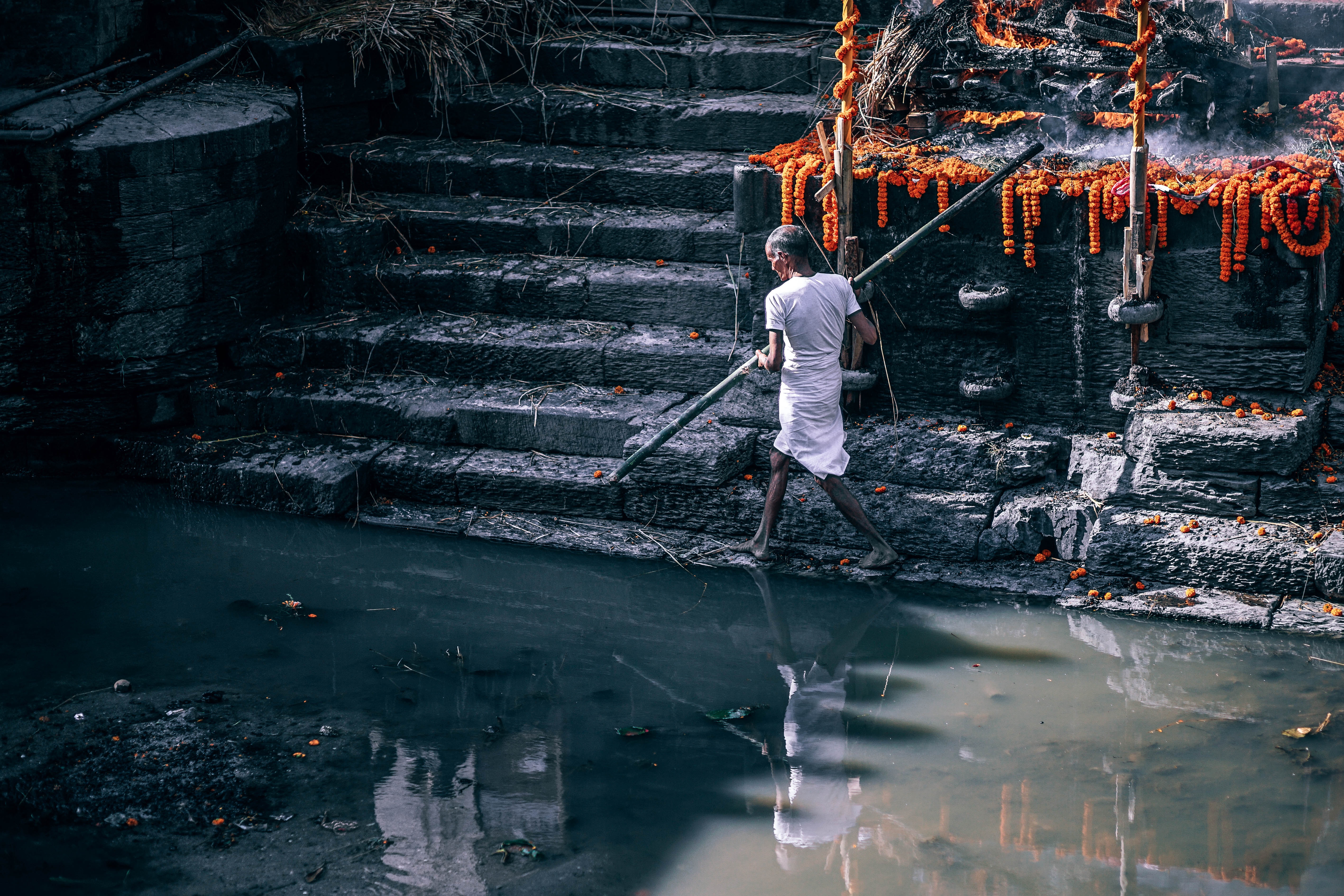
If there’s a single goal of Uproxx’s Travel writing, it is to get you on the road. Travel is amazing, edifying, and humanizing. We expand our minds and can become better people when we travel. Fear is put in check. Life is lived to its fullest. After traveling to 70 countries and territories (according to The Century Club) over the last 30 years, I’ve seen a lot, failed a lot, hurt a lot, grown a lot, laughed a lot, cried a lot, and learned … well … a lot.
All glamour aside, travel can be one of the hardest things we ever do. It forces us to face who we are, what we think we know, and where we fit into this mad, mad world of ours. There’s a lot of light out there on the road to bask in. There’s also a lot of darkness. It’s easy to avoid the darkness, the difficult places, the moments that challenge you. But that’s not what travel — or life — is really about. It’s about challenging yourself and becoming more than yourself through interactions, failures, and recoveries. There’s no place more forgiving than the open road … until it’s not.
It’s easy to look at a post on Instagram and dream about wanderlusting around the globe. What those pictures don’t show are the lines at airports, the taxi drivers keen to rip you off, the street meat that got you sick. Or, if the person is an “influencer” what you’re not seeing is the business class lounge, the private cars from the airport to the plush hotel, the private vans to picture-perfect locations, and the pampering that all press tours entail.
It’s not so much that that perfect travel snapshot is a lie. It’s just never the whole truth.
In that vein, it’s a good time for a little reality check. Yes, travel is one of the greatest things in life. No, it’s not always easy. Nor is it a panacea for every problem. With that said, here are the hard knocks I’ve learned from my travels. Hopefully, they’ll help you when you’re out there on the road.
YOU WILL GET SICK

We all get sick from time to time. Colds, flu, coughs, sinus infections, and so forth are a normal part of life. Being sick on the road sucks. You end up devoting precious exploration time to recovery or trying to power through and likely making yourself sicker.
There’s also a lot of different food out there and it’s not always going to be up to snuff. Streetfood is one of the great joys of travel. It’s also a risk from time to time. One hard and fast rule of the road is to only eat animal proteins straight from a fire or grill, as fresh as possible. If something comes straight from the fire, there’s a really good chance that it’s reached 140F and all the bacteria is burned off. If there’s a curry that’s been sitting in a tray all day under the Lahori sun, maybe give it a pass.
If you do get sick (and you will), have a game plan. Know where good doctors work. Know what to expect when you walk into a pharmacy. Some pharmacies will give you morphine for headaches or insomnia. You don’t want to come home with an opioid addiction. There will always be people to help you out — in hostels, hotels, etc. — but don’t expect to be able to rely on your phone or anyone but yourself. Internet accessibility and what’s actually available online information-wise plummets fast around the world, especially if you’ve gotten used to first world access to information.
Lastly, don’t be afraid to go home if you get sick. Malaria, typhoid, and yellow fever are real risks nearly everywhere around the equator. You don’t need to sweat it out in-country. In some cases, you’ll have to travel to get good medical attention. Case in point, when I got typhoid in Java, I had to go all the way to Singapore to get treatment. That costs money, so be prepared. Or, at the very least, have a strategy and know what to expect.
YOU WILL GET SCAMMED

We all like to think we’re too smart to ever fall for some local scam. But it happens, all the time, and in the most innocuous of places.
This really comes down to how persnickety you get over your money. There are two ways to look at this:
- You shouldn’t be scammed out of your money because it’s cheap, foolish, and tawdry.
- Most of the places where scams are rampant are usually severely economically depressed, the people are just trying to hustle to make ends meet, and you’re never out more than a couple bucks. So who cares, really? If you’ve traveled halfway around the world to a place that’s that impoverished, can you really get all huffy if someone scams five bucks off you?
There are a lot of scams out there. Taxis in Prague are notorious for over-charging (and, yes, even with Uber). I nearly had to buy a cobra in a basket in Mumbai just to get the guy selling it to leave me alone. I finally got away because a constable with a bamboo stick beat him away. I’ve overpaid for transport from Kathmandu to Kampala. I’ve been roped into tea pitches in Shanghai. It’s never more than a few bucks, and who I am to deny anyone a side hustle?
The point is, be smart with your money. A few extra cents for a cup of tea on the streets of Kolkatta or a taxi in Kigali isn’t the end of the world. Why? Because you’re a western tourist. It’s just the way it is. And as much as you’re trying to cultivate the starving backpacker aesthetic, the fact that you can travel around the world for fun marks you as “rich.” And correctly so, globally speaking.
The important things to know is when to walk away. Taxis are almost always negotiable. If you don’t like one price, ask another taxi driver in earshot. You can just leave a Chinese teahouse once they start trying to sell you on their “amazing” tea. And, don’t buy a cobra in India.
YOUR IDEAS WILL BE CHALLENGED

This is a tough one. Any of us can easily avoid traveling to places that challenge us. That’s why all-inclusive resorts exist. However, once you get bitten by the wanderlust bug, you’ll start to go out more and more. As you travel deeper into the great unknown, things can get dark pretty quickly.
You don’t even have to go to the slums of Delhi to see the harsh reality of life that people have to live, you can go to Pine Ridge in South Dakota and learn the same lessons. The point is, life is really, really hard for billions of people on this planet. Seeing the staggering gulf between the impoverished and the elite in places like Russia, India, Brazil, South Africa, and, yes, even the United States has the ability to shake your capitalistic foundations to its core.
How comfortable are you with death? Life and death are much closer to the surface in many corners of this planet. It’s not uncommon to see corpses around India (funeral pyres and open graves with ravenous vultures can be a common sight). Russia in the winter is very harsh on the homeless population.
If you’re going to be a full adventurer and start traveling to war zones, you better be ready to see horror. And, take it from me, it will haunt you. It’s been ten years since I was in the eastern Congo working as documentarian interviewing women and children who were victims of (ongoing) mass rape and mutilation. Those images never go away.
Know how much you can handle of humanity before you take a plunge that’s too deep.
YOU WILL BE DISAPPOINTED FROM TIME TO TIME

Not everywhere is for everyone. The more you travel, the more repetitions start to appear. The architecture from Riga to Krakow to Prague to Vienna to Budapest to Bucharest is strikingly similar. Southern Thailand has great beaches and they’ll all start to blend into one after a while. Yes, the food in Italy is amazing. There are also subpar dishes getting slung every day in every Italian town, often right next to the great spots.
There’s more to it than repetition. Some places simply don’t gel with certain people. Some people love Italy but are tepid on Spain, or vice versa. There have been places recommended to me that people have nothing but amazing stories about which I’ll be happy never to go back to. The reverse is true, too. I’ve bandied on and on about how great Dushanbe and Tajikistan is to the point that a friend went and summarily hated every minute. Not everywhere is for everyone no matter how much we want it to be.
Some places will never live up to the expectations we build through Instagram models or our own fantasies. So, reign them in. Travel with an open mind and tempered expectations. You’ll be disappointed a lot less.
EXPECT YOUR BEST LAID PLANS TO FALL THROUGH

Failure is one of the best parts of travel. Getting denied a visa, a car breaking down, missing that reservation at some fancy-schmancy bistro just means that you have to juke a little left or right and think on your feet. It builds character to fail and find a solution on the fly. So embrace it.
Sometimes you’ll show up in a country during a strike or a national protest. These things usually put a huge kink in the best-laid plans. Be prepared. I was once stuck in a tiny town in Nepal during a revolution. Banks, public transport, and airports were all closed down. I’d exhausted all my stashed cash over a week of hotels and food. Finally, after five days the airport and banks reopened. The town had one ATM that only accepted local cards. I ended up having to go to four banks before I was able to make a withdrawal from my debit card and finally get out of dodge. But I met some amazing people, ate new and exciting foods, rode a rickshaw for the first time, and learned that all plans can always wait.
THE ONUS IS ON YOU TO LEARN THE BASIC LAWS AND CUSTOMS

Personal responsibility is paramount to living on the road — well, all life really. It’s on you to know what’s right and wrong in the place you’re visiting. Don’t expect anyone to meet you at the airport and tell you how to behave. Outside of a few corners of Europe, North America, and South America, the world is very, very conservative for the most part. Dressing modestly (as a man or woman) is the norm for people who live from Beijing to Beirut. Drug laws in Southeast Asia are drastically harsher than almost everywhere else in the world.
Don’t judge — there are still baffling alcohol laws across the United States. When I was road tripping around the American South throughout college, the first thing we’d always ask when we’d roll into a town is what the alcohol laws were (this was way before smartphones). Why? Because it was on us not to break the laws of that county. Claiming youthful ignorance is not an excuse. Ever. Today, you can look up alcohol, drug, and decency laws very easily by just googling them for the country you’re planning to visit.
In the end, it’s really easy to just say, “don’t be an asshole.” But, it’s more than that. It’s the blending of respect for your host country and taking responsibility for yourself when you’re out there exploring this planet. No one owes you anything. But you owe them a modicum of respect for their laws and ways of life (even if you vehemently disagree with them). You’re the visitor, after all.






